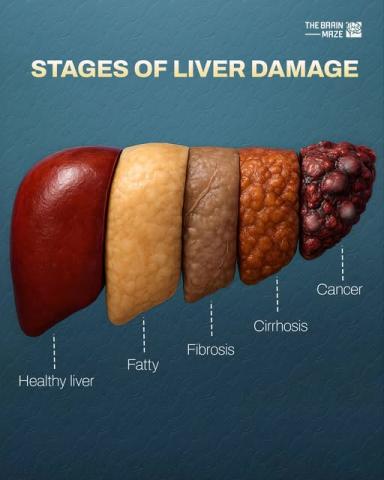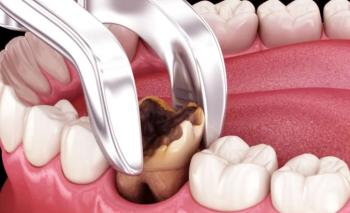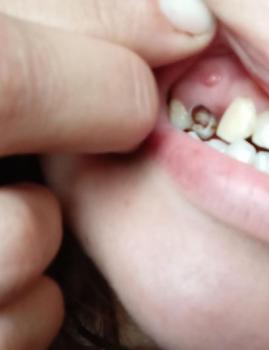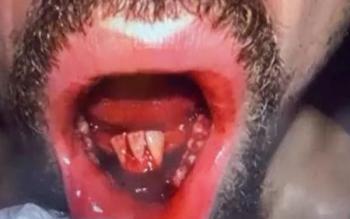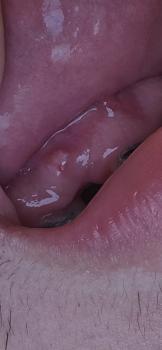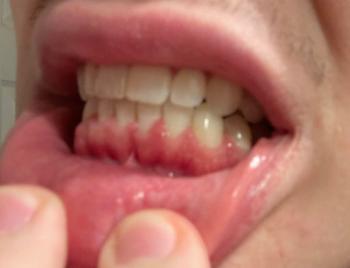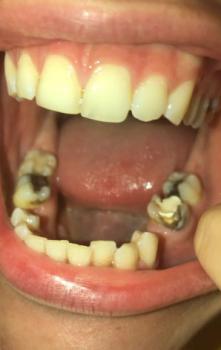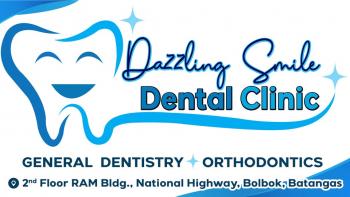Transforming Smiles, Restoring Confidence.
The Unseen Connection: How Liver Damage Can Wreck Your Smile
Your Liver is Talking: What Your Dentist Might See First
When you think about risk factors for dental problems, you likely picture sugar, poor brushing habits, or maybe genetics. It’s unlikely you’d ever point to your liver. But the surprising truth is that the health of your liver and the health of your teeth and gums are intimately connected.
Your liver is your body's primary detoxification center and protein factory. When it's damaged, the effects ripple throughout your entire body—and your mouth is often one of the first places to sound the alarm.
The Silent Progression of Liver Damage
Liver damage is often a stealthy process. It typically begins with a fatty liver, where fat accumulates inside the cells due to factors like a poor diet, alcohol consumption, or metabolic disorders like diabetes. This can progress to chronic inflammation, leading to fibrosis (scarring). If unchecked, this scarring becomes cirrhosis, where liver function is severely compromised. In advanced stages, this can increase the risk of liver cancer.
But how does this internal crisis show up in your smile? Here are the key connections.
4 Ways a Struggling Liver Manifests in Your Mouth
1. Bleeding Gums and a Heightened Risk of Periodontitis
Your liver produces proteins called clotting factors that are essential for your blood to clot properly. When liver function declines, your blood's ability to clot is impaired. This means your gums may bleed excessively with even gentle brushing or flossing. This bleeding isn't just a nuisance; it creates a gateway for bacteria, significantly increasing your risk of developing severe, chronic gum disease (periodontitis).
2. Jaundice in the Mouth
One of the most visible signs of advanced liver disease is jaundice—a yellowing of the skin and the whites of the eyes. But your oral tissues aren't immune. You might notice a yellowish hue in the soft tissues of your mouth, such as the underside of your tongue or the lining of your cheeks. This yellowing is caused by a buildup of bilirubin, a waste product that a healthy liver would normally filter out.
3. Lichen Planus: The Inflammatory Link
There is a well-documented association between liver disease, particularly hepatitis C, and a condition called Oral Lichen Planus. This chronic inflammatory condition appears as white, lace-like patches or red, swollen tissues inside the mouth. It can be painful and is considered a potential autoimmune response linked to liver dysfunction. If your dentist spots this, it may be a prompt to investigate your overall systemic health.
4. Tooth Decay and Erosion (Especially in Alcohol-Related Liver Disease)
For those with alcohol-related liver disease, the risk to teeth is twofold:
-
Dry Mouth (Xerostomia): Alcohol is a diuretic and can cause dehydration and chronic dry mouth. Saliva is your mouth’s natural defense, neutralizing acids and washing away food particles. Without it, you’re far more susceptible to rampant tooth decay.
-
Acid Erosion: Frequent vomiting, a symptom associated with cirrhosis and other late-stage liver issues, bathes the teeth in strong stomach acid. This acid wears away the protective enamel, leading to sensitivity, discoloration, and a higher risk of cavities.
What You Can Do: A Dual-Pronged Approach
The connection between your liver and your teeth underscores a fundamental dental truth: your mouth is not separate from the rest of your body.
-
Talk to Your Dentist: Be open with your dentist about your overall health, including any known liver conditions. What we see in the chair can be a crucial piece of your overall health puzzle.
-
Prioritize Liver Health:
-
Eat a Liver-Friendly Diet: Focus on whole foods, fruits, vegetables, and lean proteins. Reduce processed foods, sugars, and unhealthy fats.
-
Drink Responsibly: Limit alcohol consumption.
-
Manage Underlying Conditions: Work with your doctor to manage weight, cholesterol, and blood sugar levels.
-
-
Double Down on Oral Hygiene: Meticulous oral care becomes even more critical. Brush twice daily with fluoride toothpaste, floss every day, and see your dentist for regular cleanings to manage the increased risks of gum disease and decay.
The Bottom Line
A damaged liver can’t do its job properly, and the consequences extend far beyond the abdomen. By taking care of your liver through healthy lifestyle choices, you’re not just protecting a vital organ—you’re also investing in a healthier, stronger smile for years to come.
Disclaimer: This blog post is for informational purposes only and is not a substitute for professional medical or dental advice. If you have concerns about your liver or oral health, please consult with your physician and dentist.
healthy food:

